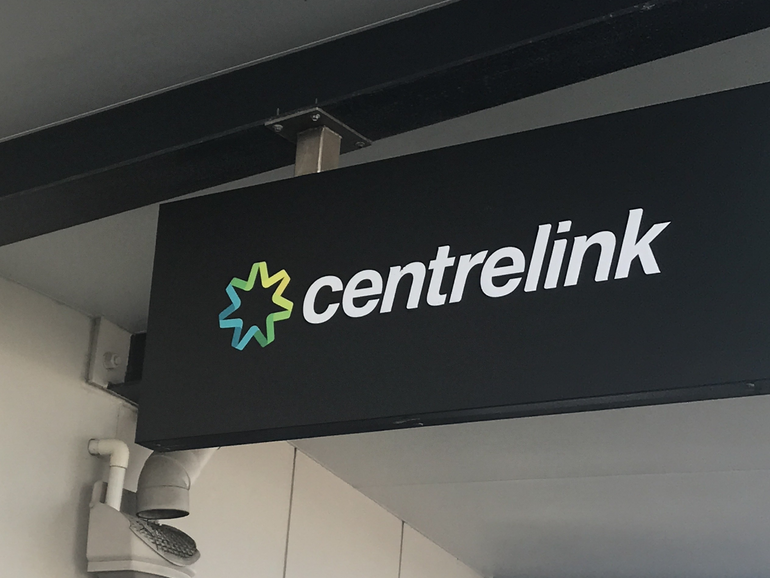A Senate committee has heard that Services Australia staff were forced to revert back to Excel spreadsheets to rectify some of the errors made by Centrelink’s automated income compliance program.
The remarks were made on Friday during a hearing held by the Community Affairs References Committee as part of its ongoing probe of Centrelink’s compliance program.
Representatives from the agency responsible for the program that colloquially became known as robo-debt were asked if Excel spreadsheets, rather than computer systems, were being used to manually view debt files to determine and calculate refunds.
“No, and yes — if I can put it in those terms,” Services Australia integrity strategy, engagement, and policy branch national manager Robert McKellar said.
“The use of Excel spreadsheets was a part of the process of disaggregating what we would call mismatched records and multiple debts where there was a necessity to conduct some detailed analysis, where a customer had multiple assessments against their record and we needed to identify the correct one to apply back into the customer’s record on our main system in order to correctly assess whether a debt included averaging income information or not.”
He said that was not a functionality available on the main system, but explained the Excel spreadsheet process was needed to assess the correct information in order to record that back onto customers’ records.
The reference to Excel was made in a report performed by KPMG that, according to Senator Deborah O’Neill, talked about ongoing training and “learner” staff “making very sophisticated decisions using technologies such as spreadsheets and Post-it notes”.
“I’m not sure where the reference to Post-it notes comes from, but the role of KPMG in the process was one of providing external assurance over our risk management and quality control processes to ensure their effectiveness and to advise on any possible improvements,” McKeller clarified.
“The Ombudsman noted in their report that KPMG found that our processes were conducted in a reasonable manner, given the nature of the limitations of our technology and the manual approach that we needed to take in order to identify averaged ATO income information on a customer record.
See also: Services Australia battling large-scale transformation and an APS IT talent shortfall
“Because of the way information is reflected on the customer record, in order to address some of the more complex assessments, some information needed to be analysed through an Excel spreadsheet table, but that does not indicate that it is an untoward process — merely that we needed to use different tools according to the circumstances to conduct a thorough assessment.”
While much of Friday’s questions went unanswered, due to a claim of public interest immunity made by Minister for Government Services Linda Reynolds, O’Neill pivoted her line of questioning to concerns regarding Services Australia’s staff as the staff tasked with rectifying debts on a spreadsheet were also the ones that had previously been charged with raising the debts.
“The reality is that the government constructed a scheme that was illegal and then forced public servants to enforce compliance with an illegal scheme. That must be difficult work to do, especially when they’re encountering so many complaints, concerns, and requests for reconsideration,” she said.
“Having gone through that process as public servants must have been pretty gruelling. Then they were required, in that period from the end of 2019 to the beginning of 2020, to go in and use Excel spreadsheets and Post-it notes to go back and correct this error that they were forced to inflict by the government that directed them to do so.”
Services Australia compliance assurance and debt operations division general manager Chris Birrer rejected this characterisation regarding the working situation of the staff.
Representatives were also asked their position on “ethical AI”, with O’Neill expressing concern that “robo-debt 2.0 is under construction as we speak”.
“I don’t know what activity you’re characterising as robo-debt 2.0, but in terms of the terms of reference of the inquiry and the Income Compliance Program, in the agency submission that was made to the inquiry … it points out the importance of the involvement of those customers and the staff in each stage of the review process,” McKellar said.
“References to AI or the like are not appropriate in these circumstances, because humans were involved, both the humans of our staff and the humans of customers, to take into account the individual circumstances of customers in each of these compliance reviews.”
The Centrelink scheme resulted in approximately 347,000 people being pursued for debts that they did not owe based on an inaccurate, automated calculation of their income, totalling AU$1 billion.
As of 13 August 2021, Services Australia has repaid money to the value of AU$736.2 million, representing 98% of the value of refunds to be paid.
There are around 10,000 people yet to receive a refund and of that figure, approximately 9,000 are former customers.
The Commonwealth also agreed to pay AU$112 million in compensation following a class action brought on by Gordon Legal.
MORE ON ROBO-DEBT
Gordon Legal on robo-debt class action: It was never meant to be a Royal Commission
In addition to highlighting its work was not in lieu of a Royal Commission, the law firm that brought on a class action against the Commonwealth believes the minister’s claims of public interest immunity are no longer relevant as the legal proceedings are all but officially over. Meanwhile, Labor has asked again for a Royal Commission.
Robo-debt committee refuses to accept Minister Reynolds’ immunity claim
The Australian Parliamentary committee looking into Centrelink’s compliance program has rejected the public interest immunity claim made by the Minister for Government Services and has asked she provide documents on legal advice received by Services Australia.
Ombudsman report shows Centrelink’s data-matching tool was mostly a waste of time
The manual work that Centrelink’s automated robo-debt system was meant to replace had to be manually completed once refunds were found to be owing.
